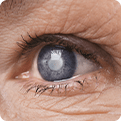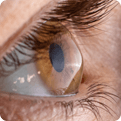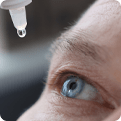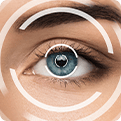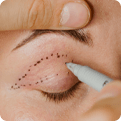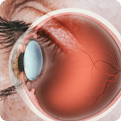
Do you see flashes of light or floaters in your vision? If you’re experiencing these symptoms, it’s possible you need treatment for a retinal disease. Unfortunately, conditions affecting the retina are a common cause of vision loss and even blindness. However, with early detection and treatment from a Newark specialist, you can often prevent rapid deterioration and preserve your eyesight.
What Are the Common Retinal Diseases Treated by Specialists?
The retina is the light-sensitive tissue at the back of the eye that converts light into electrical signals that the brain interprets as visual images. Due to injury or disease, the retina can experience damage that will affect your vision.
Retinal Detachment
Retinal detachment is a condition where the retina separates from the tissue at the back of the eye. Causes can vary from eye injuries to aging, and symptoms to be aware of include an increase in flashes of light and floaters.
Retinal Tears
Retinal tears are small rips or holes in the retina. By identifying a retinal tear, it’s often possible to treat the condition and prevent the more serious issue of retinal detachment. While tears in the tissue at the back of the eye are not painful, they usually cause floaters and flashes of light.
Age-Related Macular Degeneration
Age-related macular degeneration is a disorder caused by damage to a part of the retina called the macula. This disease affects those over age 50 and can lead to a loss of central vision. A retina specialist may treat the disease with eye vitamins and eye injections.
Central Serous Retinopathy
Central serous retinopathy is a disease where fluid builds up behind the retina. In the worst cases, the fluid can cause retinal detachment and vision issues. Typically resulting from stress and the use of corticosteroids, this condition may require treatment if it doesn’t resolve itself within a few months.
Epiretinal Membrane
Also called a macular pucker, the epiretinal membrane is a delicate tissue-like scar or membrane that forms on top of the retina. When it forms over the macula, it can cause distortion and blurring in your central vision. This condition is most common in older adults and in those with diabetes and similar conditions. Most patients with epiretinal membranes only require monitoring. Only more severe cases would benefit from surgery.
Diabetic Retinopathy
Individuals with diabetes are at risk from blood vessel damage called diabetic retinopathy. In its advanced stages, the disease can cause blurry vision, floaters and blind spots – and, eventually, blindness.
How Are Retinal Diseases Managed and Treated?
Treatment for retinal diseases will vary considerably, depending on the type and severity of the issue. After comprehensive testing and a diagnosis, patients should receive early retinal disease care to prevent complications and vision deterioration. Retinal specialists follow a personalized management approach for each patient, including eye drops, injections and laser therapy.
Speak With Us About Treatments for Retinal Diseases in Newark
Eye Care of Delaware provides expert treatment for retinal diseases and other common causes of vision loss. We diagnose and treat retinal conditions at our state-of-the-art eye care center in Newark, DE. To learn more, call (302) 454-8800 or request an appointment today.

